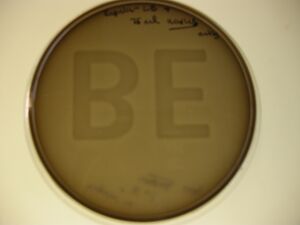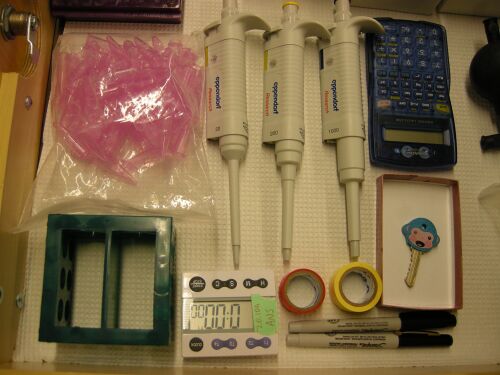20.109(S11):Module 2
Module 2
Instructors: Ron Weiss and Agi Stachowiak
TA: Adrian Randall
As engineers, we would like to make useful objects that behave in a predictable fashion. As biological engineers, we face unique challenges in implementing our ideas: the biological machines we create may evolve, their components may not always play nicely together, and slight variations in the environment might substantially affect their function. In this module, we will work on understanding and improving an edge detection system effected by bacteria. By way of diffusible signals and photosensitivity, a single (i.e., genetically identical) cell population is able to copy the outline of an image placed above it. However, the system can be finicky, with low contrast, poor resolution, and little margin for variability in preparation. Using a more easily manipulatable system (not based on light) as a tool, we will attempt to improve system robustness and consider how to transfer our knowledge to improve the original edge detector.

We thank 20.109 instructor Natalie Kuldell for helpful discussions during early module development, as well as for her prior work in developing a related module. We also thank Lisa Foo, '12, for her contributions to pilot experiments, particularly in obtaining the light:lacZ transfer function.
Module 2 Day 1: Explore model system
Module 2 Day 2: Complete DNA design
Module 2 Day 3: Prepare DNA for cloning
Module 2 Day 4: Ligate DNA and transform bacteria
Note: spring break week occurs between day 4 and day 5 of lab.
Module 2 Day 5: Prepare candidate clones in model cell strain
Module 2 Day 6: Evaluate DNA and choose clone
Module 2 Day 7: Assay modified model system
Module 2 Day 8: Wrap-up analysis and modeling
